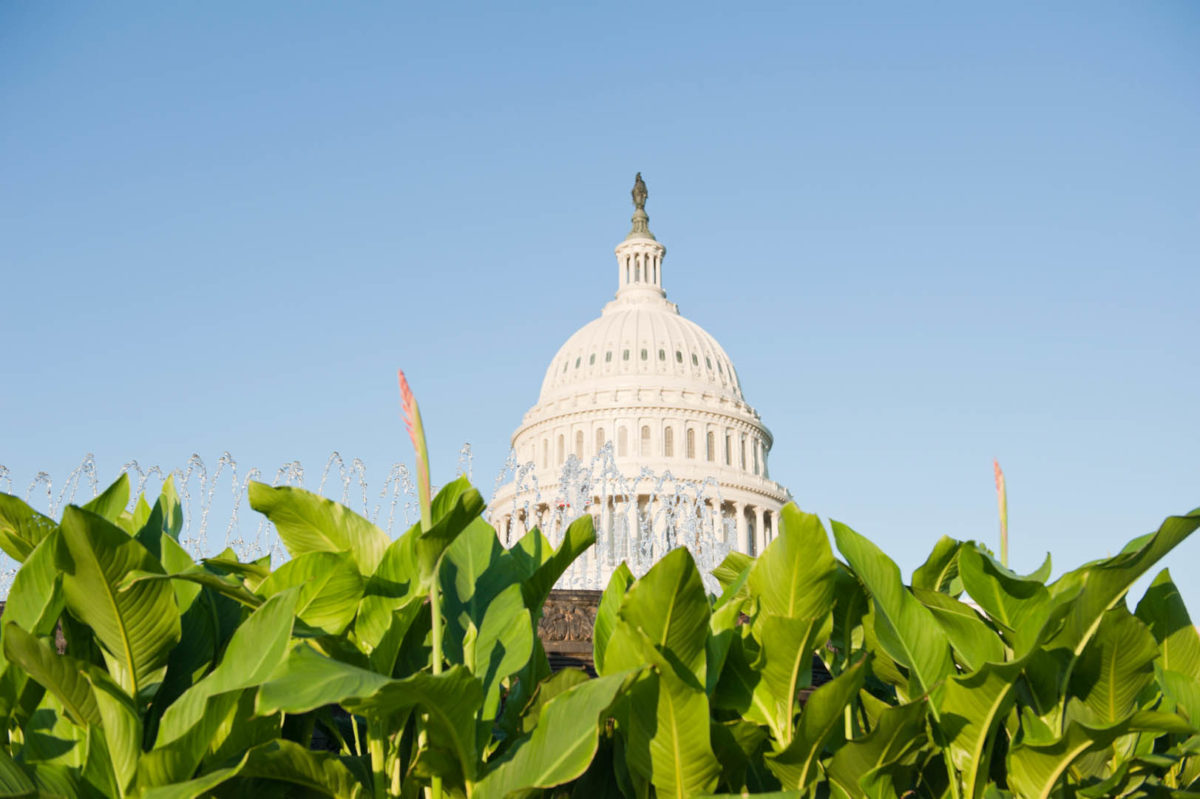From The Hill: Lawsuit to Challenge Industry Exclusion from SBA COVID-19 Relief Revving Up

For many businesses struggling during the COVID-19 induced shutdown, assistance from the Small Business Administration (SBA) through the Paycheck Protection Program (PPP) is the difference between lifeline and economic ruin. But for thousands of professionals serving state-legal cannabis businesses, including non-profits like NCIA and innumerable small businesses alike, access to PPP money remains elusive. A group of lawyers is in the process of developing a legal challenge to this unjust treatment.
The SBA Policy Notice on April 3, 2018, precludes any company that has received any revenue from a marijuana business from receiving SBA assistance, including service providers like lawyers, accountants, or consultants which provide counsel to thousands of legitimate cannabis businesses around the country. This SBA guidance has prevented many firms from applying for PPP loans and casts doubt as to whether firms that received loans but have done work for cannabis clients will have their loans revoked.
A coalition of law firms led by Yetter Coleman LLP is seeking to raise $150,000 for a legal defense fund to strike down the guidance. The lead plaintiff will likely be a law firm whose PPP application was denied because of this rule. If successful, the challenge would benefit the industry going forward by removing the “Indirect Marijuana Business” guidance from SBA’s eligibility determinations. But time is of the essence with the PPP program winding down and the forgiveness rules are already likely being drafted.
In a recent letter to Treasury Secretary Mnuchin and SBA Administrator Jovita Carranza, the American Bar Association (ABA) requested the SBA to clarify eligibility under the business loan program to allow access to the Coronavirus Aid, Relief, and Economic Security (CARES Act) funds through the PPP for lawyers and law firms that provide services to cannabis businesses operating legally under applicable state laws. According to the ABA, of the 1.3 million attorneys practicing in the U.S. in 2019, approximately 78% are in jurisdictions where marijuana sales are permissible under state law. Under the current guidance, the ABA is concerned that many of these lawyers and their firms could be unfairly disqualified from receiving PPP assistance.
“The ABA supports amending federal law to ensure that lawyers do not face the threat of criminal charges when they represent clients in states that have legalized marijuana,” the June 5 letter states. “Even before those changes are made to federal law, lawyers should also not be penalized for providing legal services to cannabis-related businesses that comply with state laws.”
In a March 22, 2020, Twitter post in response to a Washington-based cannabis business owner, the SBA publicly confirmed that cannabis businesses are not able to access the SBA funded programs even though cannabis businesses are as equally harmed by the coronavirus pandemic as other law-abiding, tax-paying small business operators. To date, the SBA has not formally addressed the eligibility of cannabis businesses for the broader Paycheck Protection Program.
Back in March, several industry and advocacy groups, including NCIA, issued a letter to congressional leaders seeking to limit restrictions and allow cannabis businesses to obtain the same relief available to other legitimate industries. Among other things, the letter cites the unfairness of ineligibility for SBA relief for cannabis businesses given their obligations to follow federal employer requirements and the disproportionate impact ineligibility has on small businesses.
The legal U.S. cannabis industry is projected to top $20 billion in annual sales in 2020 and now employs nearly 250,000 workers. One would think access to SBA loans that support businesses in keeping this significant workforce employed during the coronavirus crisis would be an economic priority for policymakers in Washington DC. Time will tell if this goal becomes a reality.
If you are an ancillary business interested in either donating to the legal fund or willing to offer your professional support, please email Shane Pennington of Yetter Coleman LLP at spennington@yettercoleman.com.
Committee Blog: Cannabis and COVID-19 – A Legal Perspective

By Sahar Ayinehsazian and Kelsey Middleton, Vicente Sederberg LLC
NCIA’s Banking & Financial Services Committee
As the COVID-19 pandemic continues to alter the day-to-day lives of humans across the globe in an unprecedented fashion, industries have made considerable adjustments to maintain their operations while protecting the health and safety of the workforce and the public. While some industries have had to cease operations to comply with “stay-at-home” orders, most states regulating cannabis have deemed cannabis essential, allowing cannabis businesses to continue operations during the COVID-19 quarantine period. The fact that cannabis was deemed essential in states such as California, Colorado, Illinois, and Michigan, demonstrates a major shift in public perception of cannabis and its utility. While challenges remain as they do for all industries, the cannabis industry appears poised to withstand the pandemic and to solidify its role in the economy.
Despite being deemed essential, adult-use cannabis sales have begun decreasing in states such as California, Colorado, and Nevada. Washington, however, reported record sales in April highlighting the diversity of legal markets throughout the United States. States that derive considerable sales for cannabis tourism like Nevada and California may see losses due to travel restrictions and mandatory self-quarantine periods. Although early sales reports suggest that the industry is equipped to weather this crisis, April sales only reflect the market one month into the pandemic that is likely to extend through the summer and potentially into next year. Thus, much remains unknown about the industry’s potential to stave off the impacts of an increasingly likely economic recession. Still, reports show that demand for cannabis remains strong and could potentially increase as the nation grapples with the significant financial and emotional duress associated with the pandemic.
States have taken proactive measures to ensure that patients and customers may safely access cannabis. States including California and Nevada have issued official guidance on best practices for cannabis businesses to observe to mitigate the spread of infection and preserve and promote public health. This guidance has largely prioritized the reduction of person-to-person interaction and adherence to heightened sanitation and hygiene protocols. Best practices for reducing person-to-person interaction include conducting sales by pick-up or delivery where possible, reducing the number of individuals allowed at the dispensary at any one time, and controlling the flow of visits to reduce the potential for exposure. Retailers have used space indicators like chalk, tape, and stanchions to demarcate 6-feet of separation between customers standing in line. Best practices for maximizing sanitation and hygiene include the promotion of contact-free systems such as tap-and-pay payment technology where possible, and the removal of handheld menus, tablets, and iPads, and aroma jars from dispensary surfaces. Retailers are advised to clean and sanitize commonly touched surfaces on a routine basis and to provide hand sanitizer to all employees and patrons in conspicuous locations to encourage frequent sanitization. Additionally, employers are required to monitor their employees’ health and hygiene practices. Employers should require any employer showing a COVID-19 related symptom to stay home from work.
While some businesses can rely on federal stimulus programs such as SBA loans for COVID-19 related relief, cannabis businesses cannot. Despite being equally harmed by the pandemic as other law-abiding, tax-paying small business operators, cannabis operators are ineligible for such funding because the cultivation and sale of cannabis remains illegal under federal law. While cannabis businesses are not currently eligible for federal relief programs, it appears that cannabis businesses may be eligible to defer the deposit and payment of their share of Social Security tax.
Nonetheless, as further proof of the growing bipartisan support for cannabis, multiple senators and congress members have requested that future COVID-19 relief packages include accessibility for cannabis businesses. One of the main reasons cited has been the cannabis industry being deemed “essential,” thereby allowing it to provide much-needed support to various states’ economies.
While the details of a post-COVID-19 world remain to be seen, one thing is clear – cannabis will continue to play a growing and important role in the U.S. economy.
 Sahar Ayinehsazian is an attorney in Vicente Sederberg‘s Los Angeles office, where she focuses on corporate transactions, cannabis banking, and regulations. With her specialized knowledge, Sahar helped to establish and currently co-leads Vicente Sederberg’s Banking and Financial Services Department. As a member of the National Cannabis Industry Association’s Banking Access Committee, Sahar also works on strategy and educational advocacy to enable state-licensed businesses to obtain accounts at depository institutions.
Sahar Ayinehsazian is an attorney in Vicente Sederberg‘s Los Angeles office, where she focuses on corporate transactions, cannabis banking, and regulations. With her specialized knowledge, Sahar helped to establish and currently co-leads Vicente Sederberg’s Banking and Financial Services Department. As a member of the National Cannabis Industry Association’s Banking Access Committee, Sahar also works on strategy and educational advocacy to enable state-licensed businesses to obtain accounts at depository institutions.
 Kelsey Middleton is a Regulatory Specialist in Vicente Sederberg’s Los Angeles office, where she focuses on licensing and regulatory compliance. Kelsey is responsible for assisting a dynamic range of cannabis clients in obtaining state and local cannabis licenses, permits and approvals, and navigating the complex and rapidly evolving regulatory landscape of the cannabis industry. She routinely helps clients prepare the requisite applications and documentation for state and local licensing and permits, and facilitates communications with cannabis industry regulators to promote efficiency and compliance throughout the licensing process.
Kelsey Middleton is a Regulatory Specialist in Vicente Sederberg’s Los Angeles office, where she focuses on licensing and regulatory compliance. Kelsey is responsible for assisting a dynamic range of cannabis clients in obtaining state and local cannabis licenses, permits and approvals, and navigating the complex and rapidly evolving regulatory landscape of the cannabis industry. She routinely helps clients prepare the requisite applications and documentation for state and local licensing and permits, and facilitates communications with cannabis industry regulators to promote efficiency and compliance throughout the licensing process.
Prior to joining VS, Kelsey interned at the Los Angeles Department of Cannabis Regulation where she analyzed proposed cannabis legislation and approaches for enhancing the efficacy of cannabis social equity programs.
Kelsey obtained her Juris Doctor from the UCLA School of Law, where she was the Co-Founder and Co-President of the Cannabis Law Association, and External Relations Chair of the Black Law Students Association.
Update On the Prospects of Federal Relief for the Cannabis Industry

by Michelle Rutter Friberg, NCIA’s Deputy Director of Government Relations
The last few weeks have been difficult for everyone, and most people are justifiably concerned about what the future holds for their health, safety, and livelihoods. This is certainly the case in the cannabis industry, so we wanted to provide an update about where things stand regarding cannabis businesses and federal relief.
As the debate over the most recent federal coronavirus aid package was raging, NCIA and our allies were working tirelessly to urge members of Congress to make legal cannabis businesses eligible for loans and direct payments. A coalition of trade groups also sent a letter to congressional leadership and key committees specifically asking them to include cannabis businesses in consideration for loans through the Small Business Administration.
Unfortunately – but understandably – lawmakers were more concerned with providing assistance to all Americans in need as quickly as possible, and did not incorporate many requests related to special issues and disproportionately impacted industries. However, we received a lot of positive feedback from a number of congressional offices.
As things currently stand, individual cannabis industry employees who filed taxes last year should be eligible for the direct household payments included in the latest relief legislation as long as they meet the standard criteria. It may also be possible for states to use some of the funds they receive from the federal government to support the industry. But for the time being, cannabis businesses are not eligible for SBA loans or direct federal funding.
This battle is far from over though. Congress is in recess until the end of April, at which point efforts will commence on approving the next stage of coronavirus relief funding. Rest assured, NCIA’s dedicated Government Relations and Public Policy team is working night and day to make sure that the cannabis industry is included in the next round of funding so that we can continue to provide our communities – particularly medical cannabis patients – with the safe and reliable access they need. In addition to pushing for SBA loans and direct funding eligibility, we are also exploring ways to remedy some of the other financial problems caused by outdated federal policies, as well as urging state governments and regulators to continue to allow some form of cannabis access for the duration of the pandemic response.
At a time when cannabis businesses are being increasingly recognized as a vital component of public health and economic well-being, they deserve to be treated fairly and have access to the same benefits other businesses are receiving. We will keep you posted on any developments, and please contact your members of Congress to respectfully request that they explicitly include the cannabis industry in future federal aid packages.



 Sahar Ayinehsazian is an attorney in Vicente Sederberg‘s Los Angeles office, where she focuses on corporate transactions, cannabis banking, and regulations. With her specialized knowledge, Sahar helped to establish and currently co-leads Vicente Sederberg’s Banking and Financial Services Department. As a member of the National Cannabis Industry Association’s Banking Access Committee, Sahar also works on strategy and educational advocacy to enable state-licensed businesses to obtain accounts at depository institutions.
Sahar Ayinehsazian is an attorney in Vicente Sederberg‘s Los Angeles office, where she focuses on corporate transactions, cannabis banking, and regulations. With her specialized knowledge, Sahar helped to establish and currently co-leads Vicente Sederberg’s Banking and Financial Services Department. As a member of the National Cannabis Industry Association’s Banking Access Committee, Sahar also works on strategy and educational advocacy to enable state-licensed businesses to obtain accounts at depository institutions. Kelsey Middleton is a Regulatory Specialist in Vicente Sederberg’s Los Angeles office, where she focuses on licensing and regulatory compliance. Kelsey is responsible for assisting a dynamic range of cannabis clients in obtaining state and local cannabis licenses, permits and approvals, and navigating the complex and rapidly evolving regulatory landscape of the cannabis industry. She routinely helps clients prepare the requisite applications and documentation for state and local licensing and permits, and facilitates communications with cannabis industry regulators to promote efficiency and compliance throughout the licensing process.
Kelsey Middleton is a Regulatory Specialist in Vicente Sederberg’s Los Angeles office, where she focuses on licensing and regulatory compliance. Kelsey is responsible for assisting a dynamic range of cannabis clients in obtaining state and local cannabis licenses, permits and approvals, and navigating the complex and rapidly evolving regulatory landscape of the cannabis industry. She routinely helps clients prepare the requisite applications and documentation for state and local licensing and permits, and facilitates communications with cannabis industry regulators to promote efficiency and compliance throughout the licensing process.
Follow NCIA
Newsletter
Facebook
Twitter
LinkedIn
Instagram
News & Resource Topics
–
This Just In
How THCa Vapes Are Changing Consumer
Announcing NCIA’s 2026-2028 Board of Directors